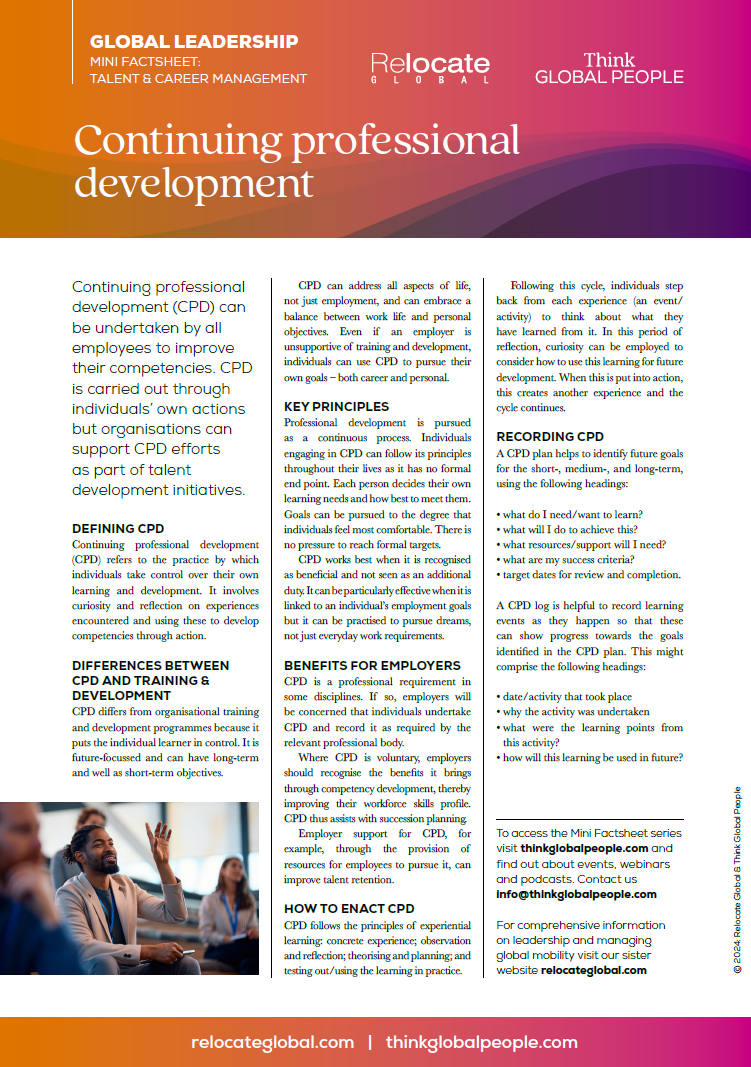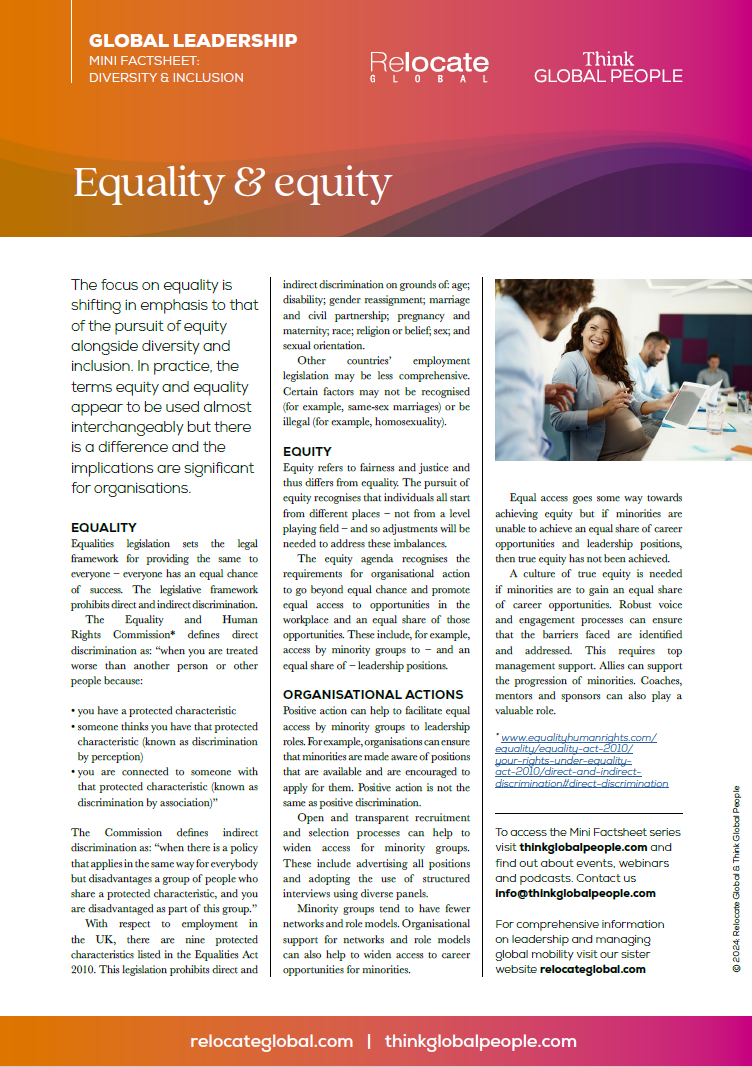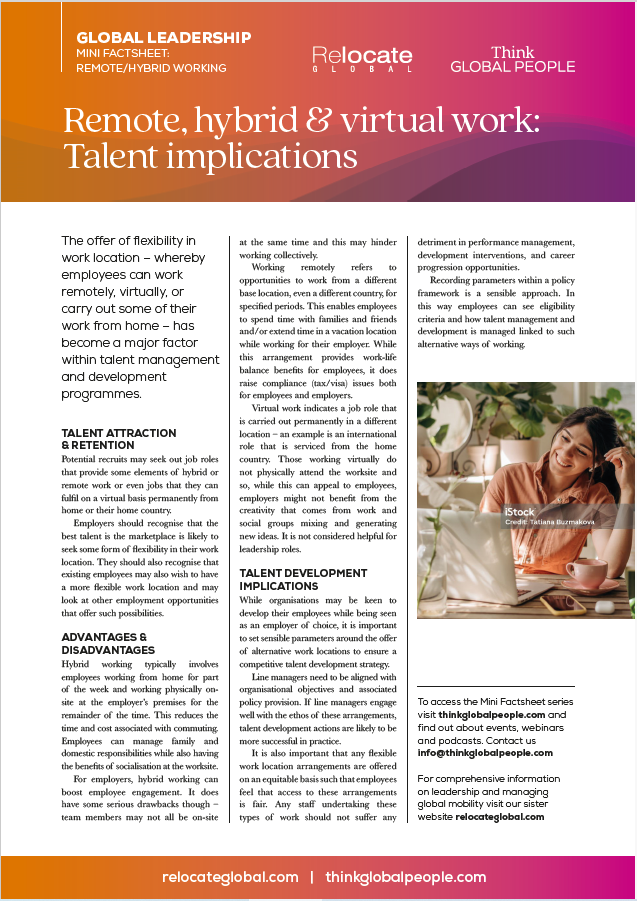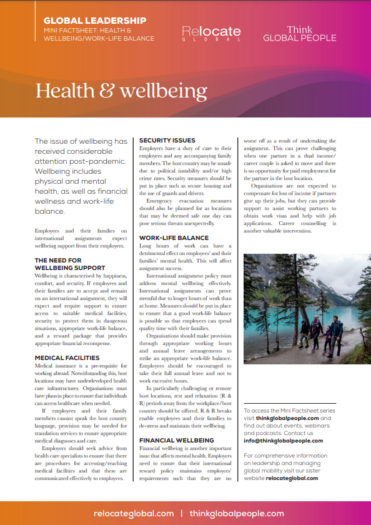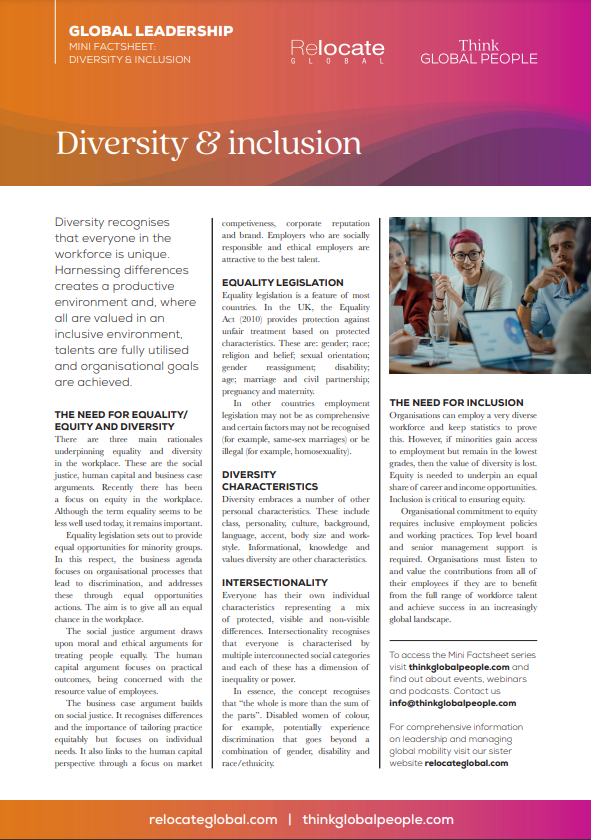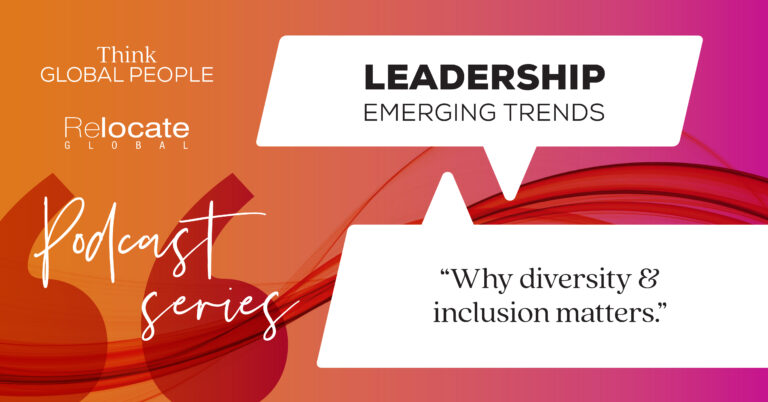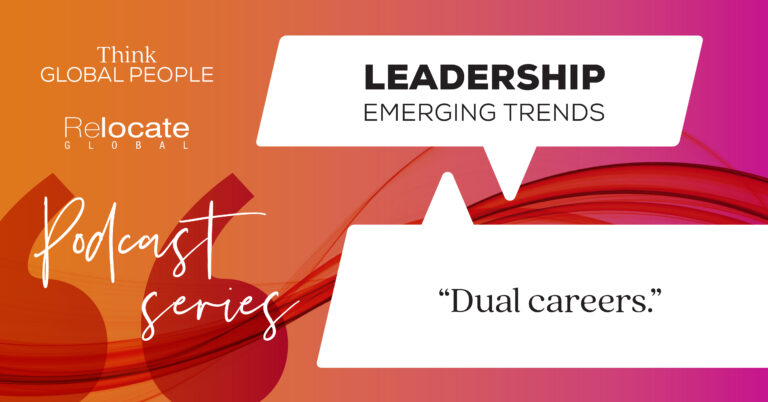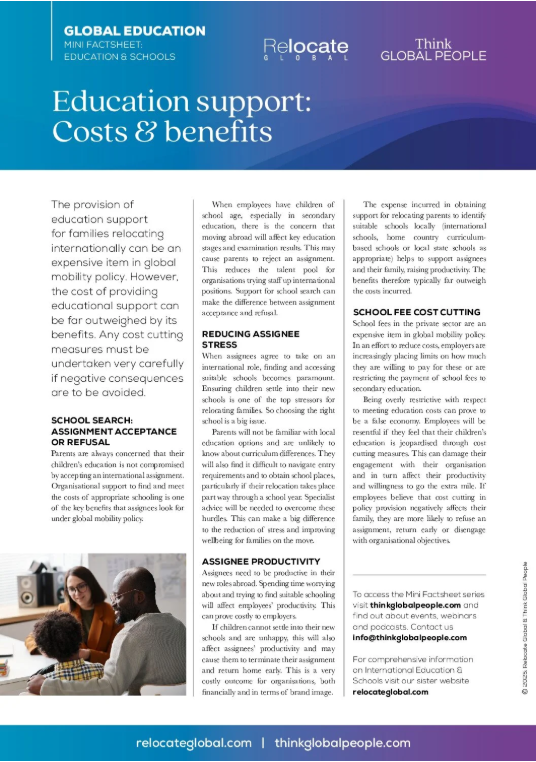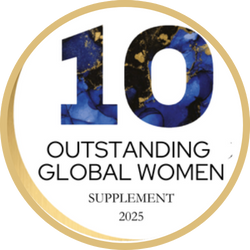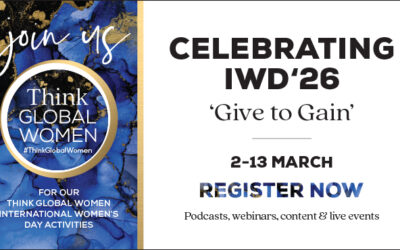think global women
Think Global Women 2024 Resources
Contribute to best practice and policy guidlines
Think Global Women Inspire Inclusion Event 2024
Experience the Think Global Women: Inspire Inclusion event held in London for yourself. Watch the videos as an individual or share with your organisation and stakeholders. Facilitate your own discussions and then share your feedback with us. Your views and allyship will help to accelerate pay parity and promote inclusive workplaces around the world.
Below is a summary of the feedback from our roundtable discussions on 8 March. We can’t wait to hear what ideas and action points you suggest for best practice guidelines. Email editorial@thinkglobalpeople.com
KEYNOTE SPEAKER
PANEL
FEEDBACK
Start implementing actions to inspire inclusion in your organisation
We’ve collated the ideas, suggestions and experiences of the many delegates, including global experts who attended the event into a series of action points that employers and organisations can use to enhance inclusivity. This framework will benefit all employees – men as well as women – to help increase diversity and inclusion and open up greater opportunities for all.
Gender equality & allyship
FLEXIBLE AND HYBRID WORKING PRACTICES
Organisations could help working parents by:
- Allowing maternity and paternity leave to be split between both parents, rather than limiting the amount of time the father is allowed to take off work
- Introducing flexible working arrangements to prevent burnout, particularly women who are caring for children and elderly parents
- Implementing flexible working hours, respecting personal time and important family commitments
- Highlighting the importance of senior leaders embracing a culture of flexibility, modelling flexible working and advocating for job-sharing opportunities
- Recognising the challenges of balancing dual careers and childcare responsibilities
- Understanding that women often carry the greater mental load of managing childcare and household tasks, which can impact their ability to prepare and perform at their best at work.
In conclusion
Open discussions between partners and employers can help find flexible arrangements that suit the individual needs of all employees.
Men would also benefit from a workplace culture that is more inclusive and family-friendly and that recognises unsocial working hours are challenging for fathers as well as mothers.
Email us with your feedback and suggestions for best practice guidelines. Editorial@thinkglobalpeople.com
WELLBEING, RESILIENCE AND MENTAL HEALTH
Organisations could help foster wellbeing by:
- Implementing wellbeing training policies and promoting mental health first aiders in the workplace
- Offer flexibility in work arrangements to fit individual needs, including the ability to work part-time and job share
- Understanding that women often prioritise others’ needs over their own, leading to burnout and health issues
- Many employees suffer from blurred boundaries between work and home life, affecting mental health and productivity.
In conclusion
Employers and line managers have a responsibility for the welfare of all their staff.
Promoting job sharing, introducing or maintaining flexible work arrangements and prioritising employee wellbeing are key to ensuring that staff are looked after and allowed to do their best work. A happier workforce is likely to be more productive. Wellbeing checks, awareness of mental health issues and taking a genuine interest in your team are essential roles for a line manager.
Email us with your feedback and suggestions for best practice guidelines. Editorial@thinkglobalpeople.com
MENOPAUSE AWARENESS
Organisations could help provide menopause support by:
- Creating safe spaces for women around menopause issues
- Providing additional days off where necessary, which could be framed as ‘wellbeing days’ available to all staff so as not to stigmatise women
- Monthly menopause cafes to help answer questions and concerns
- Sessions for men to understand this life stage and how they can support someone they live with through menopause.
In conclusion
There is often stigma around menopause and women are reluctant to talk about it at work. Educating men and women to understand the pressures and challenges around this time of life can lead to a better understanding. Offering wellbeing days for all staff members means that people can take time off when they need it without embarrassment or compromise.
Email us with your feedback and suggestions for best practice guidelines. Editorial@thinkglobalpeople.com
BUILDING CONFIDENCE AND CREATING ALLYSHIP
Organisations could help promote the resilience of their staff by:
- Encouraging supportive environments where individuals are empowered to set and achieve goals, which in turn fosters confidence
- Supporting underrepresented groups and becoming an ally for women by championing their ideas and inputs
- Identifying each individual’s unique skills and abilities and celebrating differences among people to build confidence
- Training line managers to recognise the skills of team members and to give them support and coaching to develop personally and professionally.
Organisations could help foster confidence and allyship by:
- Helping team members set goals and work towards them so that when the project is complete, they have learnt a valuable new skill set
- Giving regular constructive feedback, rather than formal annual performance management reviews, which are historic and backward-looking
- Those who are in a position of privilege could promote allyship by using their voice and influence to support others.
In conclusion
Organisations should ensure that women are given stretch assignments and projects that enable them to develop career-enhancing skills.
Allyship is a constant, ongoing process, which involves championing others in the workplace. Both men and women can be allies to other women and help them advance and fulfil their potential.
In summary, allyship operates at three levels: at the individual level between colleagues and managers, at the leadership level with line managers and senior staff, and at the organisational level in terms of promoting a culture of inclusion and diversity.
Formal and informal women’s groups can help to promote discussion around the key issues that affect women’s careers. It is also immensely helpful to have role models and to set goals. In this respect, the support of line managers is critical. The key message here is that helping women helps everyone. A more diverse organisation is more likely to appeal to a younger demographic who will be the talent pipeline of the future and enable the business to thrive and survive any challenging times.
Email us with your feedback and suggestions for best practice guidelines. Editorial@thinkglobalpeople.com
INTERNATIONAL MOBILITY AND CAREER ADVANCEMENT
International mobility and career advancement
Women face barriers in accessing international leadership positions and a lack of support for spouses during relocations often affects dual-career couples. To take on a senior role, applicants often have to demonstrate that they have experienced an overseas role or have global experience.
Around a third of expatriate assignments initiated by organisations are held by women, but the balance between self-initiated global roles between men and women is 50-50. In other words, women have an appetite for global roles, but may be held back by policies and biases in organisations, even if these are unconsciously implemented. There are also difficulties for couples with dual careers, especially if an employer does not offer support in helping the spouse apply for a visa and find comparable work.
Organisations can help support women’s international careers by:
- Advocating for policy changes to support visa applications for spouses
- Increase transparency when choosing candidates for international assignments
- Recognising that for couples with dual careers, an international assignment can bring tensions around the division of childcare and finding a fulfilling job
- If one partner cannot find work as a result of relocation, that can put an emotional and financial strain on the family
- Using the support on the ground from service providers can also be immensely helpful and reassuring to couples and families when they are moving location
- Vertical segregation means that women tend not to be in the senior jobs from which the candidates for overseas assignments are chosen.
In conclusion
Often there is insufficient support for spouses when relocation is taking place.
Employers need to be transparent about the level of family support they will provide, including help with visa applications.
Organisations could consider providing career support and career counselling to help women push their careers forward.
It can be advantageous for companies to advertise that they want women to take international opportunities because it will widen the diversity pipeline and enhance the reputation and brand.
Email us with your feedback and suggestions for best practice guidelines. Editorial@thinkglobalpeople.com
PAY DISPARITY AND PAY EQUALITY
Organisations can help support women’s equality in pay by:
- Recognising the impact of the culture of the organisation and not expecting women to be able to flourish where there is bias and discrimination
- Signalling the need for coaching and career development for women, but being aware that this will not be enough if those women are being held back by cultural or systemic barriers
- Educating line managers to support women better and providing coaching and feedback continuously.
In conclusion
Salary transparency is essential to avoid bias and unfair remuneration policies or issues.
Women can set up formal and informal networks to gain the skills they need to raise their profile and ask for promotions and pay increases.
Fair pay is an essential component of a robust environmental, social and governance (ESG) policy, which is increasingly required from organisations by regulators, laws, stakeholders and investors.
Email us with your feedback and suggestions for best practice guidelines. Editorial@thinkglobalpeople.com
LEADERSHIP REPRESENTATION IN EDUCATION
Women are underrepresented in education leadership roles, especially in international settings. Role models, coaching and encouragement are needed to empower girls and young female leaders and help them see that their future could be in a leadership role.
Organisations can help support women’s leadership roles by:
- Ensuring that education and teacher training promote gender equality and support female leadership development
- Tailoring strategies such as career coaching to drive forward women’s career advancement
- Making sure all employees understand how to upskill to adapt to changing work patterns
In conclusion
On a global basis there is a shortage of international female leaders and the education sector is no different. Many organisations are having to recruit internally, which can be good for women, but this does not always provide opportunities to the wider potential pool of international talent.
There are misconceptions about certain jurisdictions and geographies, for example, the Middle East and India, where women’s leadership is advancing, but the perception is that there are limited opportunities for female leaders.
It is important to provide role models for girls in school and at the youngest age. Managers and organisations can “tap women on the shoulder”, encourage younger female leaders to step up, involve girls far more in leadership programmes, and look at teacher education in colleges and universities.
By educating females in the workforce, and encouraging them to strive for female leadership, there will be support for the careers of younger women. For everyone in education, there is a need to drive your career, take responsibility for developing your skillset, and encourage younger women to do the same.
Email us with your feedback and suggestions for best practice guidelines. Editorial@thinkglobalpeople.com
Accelerate change
We want to hear from you, your organisation and stakeholders to keep up the momentum. Contact us with content and photos inspired by the Think Global Women 2024 ‘Inspire Inclusion’ event and videos and email editorial@thinkglobalpeople.com
Register for forthcoming online and live Think Global Women activities events@thinkglobalpeople.com
Inspire Inclusion Articles

Gender equality and allyship: actions to inspire inclusion in the workplace
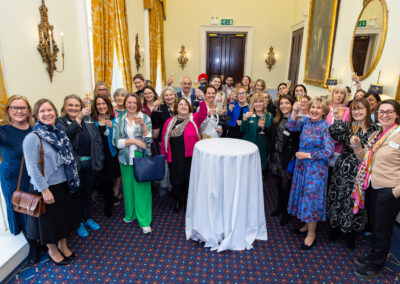
Think Global Women community celebrates International Women’s Day 2024

Employers must provide equity of support to employees

International Women’s Day 2024: Inspiring Inclusion

A toolkit to empower women and boost career prospects

Men Stepping Forward – How men can become change makers for diversity and inclusion in organisations
Other Resources


